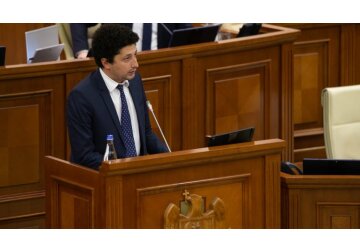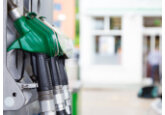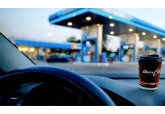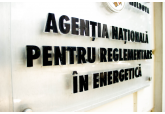
In Moldova, in the medium and long term, it is necessary to abandon the restriction and regulation of prices in the oil market.
But this will happen only after strengthening the ability of the Competition Council to control the market and ensure fair competition. This is one of the conclusions of a special parliamentary commission after reviewing the effectiveness of the application of regulations in the oil sector. The Commission's report was presented earlier in Parliament by its Chairman, PAS MP Radu Marian. According to the press service of the parliament, the special commission has analyzed the oil products market since 2001 and made a number of conclusions and recommendations for many state institutions. The report of the special commission analyzed the history of regulation, the dynamics of prices in Moldova in comparison with European countries, international quotations, trade margins, as well as the profitability declared by market participants. The Commission found that the current methodology for regulating prices for basic oil products, although not optimal from the point of view of the principles of a market economy, ensures that the price of oil products is 1-3 lei per liter lower than under the previous regulation mechanisms or under free market conditions. The report says that the price of standard diesel and gasoline is still extremely high in Moldova compared to the previous year. But this increase is caused by an unprecedented increase in import prices and quotations of petroleum products, which, in turn, was generated by the war in Ukraine and oil production problems. Compared to April 2020 (the beginning of the Covid-19 pandemic), Platts international quotes (quotations based on which gasoline and diesel fuel are imported) have increased 6 times. Compared to September 2021, the increase was 123%, and compared to February 20, 2022, the increase was about 75% at the peak of quotations in June. At the same time, the report draws attention to the fact that Moldova has some of the lowest prices for gasoline and standard diesel fuel in Europe. In the case of standard diesel fuel, as of July 4, the price was lower than in our country only in Azerbaijan, Russia, Georgia and Belarus. As of July 19, compared to Ukraine, the price of a liter of diesel fuel in Moldova is 6 lei lower, and compared to Romania - also 6 lei lower, even after the Romanian authorities reduced the excise tax by 2 lei. “In addition to the sharp rise in prices, people have always been unhappy with the fact that when international prices rise, local companies immediately raise the price, and when prices fall, gas station prices are in no hurry to reduce prices. The government has intervened with a new methodology to ensure that retail prices go down when international quotes follow the same trend. Recent price cuts at gas stations reflect this. If international quotations remain at the same level, retail prices at filling stations will continue to decline,” Radu Marian said. Other conclusions of the commission are that the specific trading margin (the difference between the cost of imports and the price of gas stations) for Moldovan oil companies has decreased in recent years due to the application of the methodology and the reduction of this margin by law. If in 2016 Moldovan oil companies ranked 3rd in Europe in terms of margins on gasoline (0.22 cents, approximately 4 lei/liter), then in July 2022 the margin was one of the lowest in Europe (0.11 cents - 2.2 lei). The situation is similar with diesel fuel. Herewith, higher prices and profitability in the neighboring countries of Romania and Ukraine mean that refineries in the region and our importers prefer deliveries to these areas to the detriment of Moldova. In particular, many cases have been identified where local oil companies and carriers re-export petroleum products to Ukraine, which in some cases leads to problems with local wholesale deliveries. In addition, the price ceiling limitation by law mainly affects small gas stations in rural areas, and this issue requires separate consideration. As noted, in addition, Moldovan oil companies continue to suffer from low efficiency. A filling station in Moldova sells an average of 1-2 tons of fuel per day, while in Romania the sales volume reaches 5-6 tons. The goal of the current Low Margin Methodology is also to improve the efficiency of the oil products market. After the amendments to the legislation on the oil products market in February 2022 (a significant reduction in the license fee from 260 thousand to 3.2 thousand lei), the number of fuel importers increased, which indirectly positively affected competition. If at the end of September 2021 there were 19 importing companies, then in June 2022, according to NAER, 24 companies were registered, including 1 agricultural producer. In the medium and long term, the special commission calls for the abandonment of the restriction and regulation of prices in the oil market. It is noted that this will happen only after strengthening the ability of the Competition Council to control the market and ensure fair competition. The special commission also proposed a package of actions for a number of instances. Thus, the commission recommends that the parliament consider the possibility of conducting an external independent audit of the effectiveness of the Competition Council, as well as consider the possibility of abolishing the need for business entities to store a minimum stock of basic petroleum products in the amount of 1,000 tons. The parliament was also instructed to ensure the transposition into national legislation of the EC Directive of September 14, 2009, imposing obligations on EU countries to maintain minimum stocks of crude oil and / or petroleum products in an amount equivalent to 2 months of domestic consumption. Meanwhile, the Competition Council was instructed to announce the results of an investigation into possible cartel agreements in the oil market in the near future; within 30 days, submit proposals for legislative amendments to the Parliament in order to improve the work of the institution; intensify interaction with the National Agency for Energy Regulation and the ISS. At the same time, the National Agency for Energy Regulation is recommended to develop a mobile application ecarburanti.anre.md within 45 days to facilitate access to the fuel price list for those who mainly use mobile phones. The Special Commission welcomed the government's decision to provide targeted support to vulnerable industries: a 100% refund of excise taxes on diesel fuel for small and medium-sized agricultural producers and a reduction in the cost of transportation permits for carriers, in parallel with the liberalization of cargo transportation with the EU. Herewith, the government was instructed to consider the possibility of reducing the price of tickets for regional and inter-district passenger transportation, as well as to study the possibility of reducing the price of fuel for road transport operators (VAT reduction, refund of excises, partial reimbursement of expenses). In addition, when developing tax policy, the Cabinet was recommended to propose measures to the Parliament to stimulate the purchase and use of electric vehicles by the population. The special commission recommends that municipalities take the necessary measures to increase the attractiveness of public transport in order to encourage citizens to travel by public transport rather than cars, and to inform about the measures taken. // 19.07.2022- InfoMarket.







